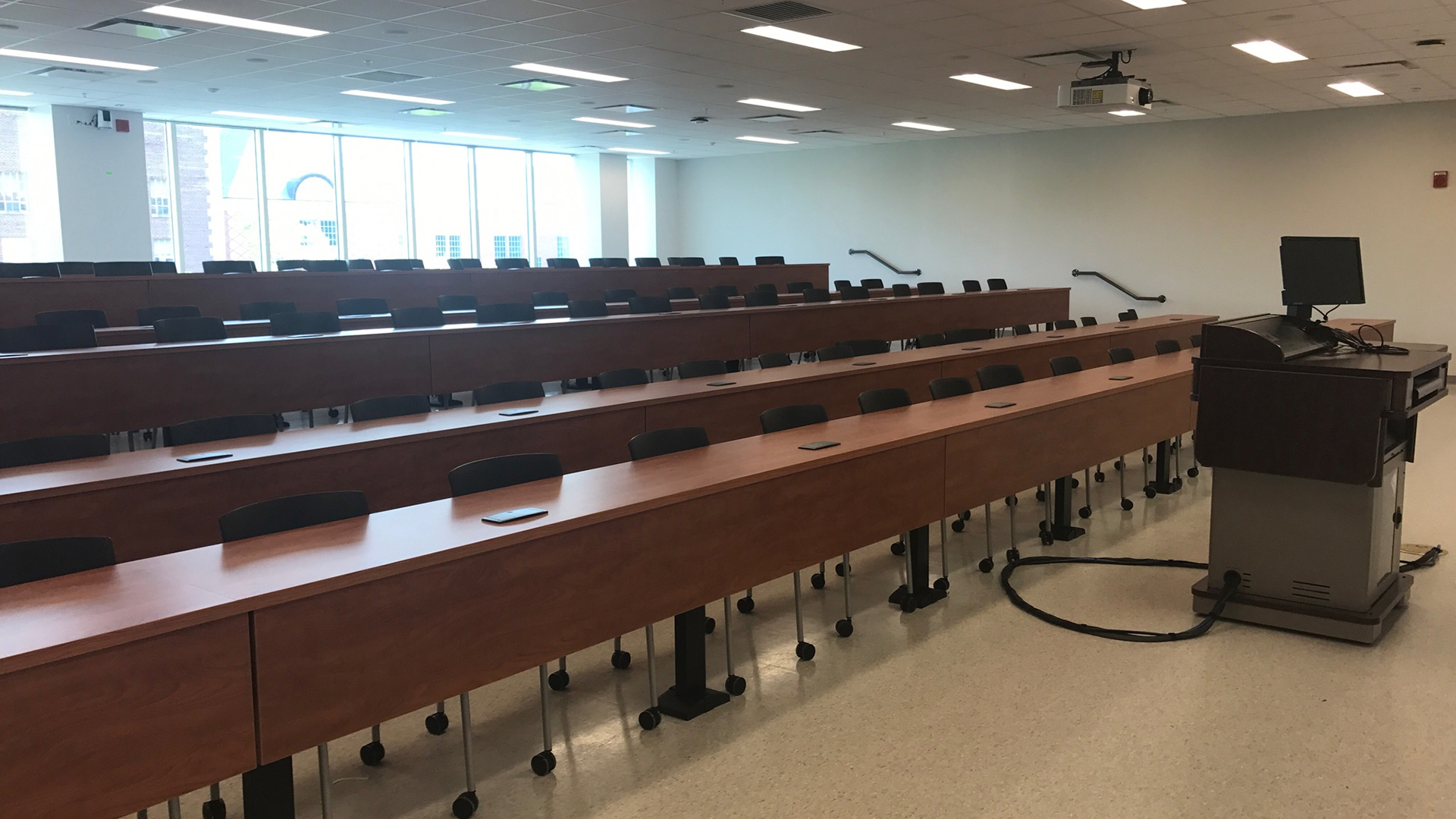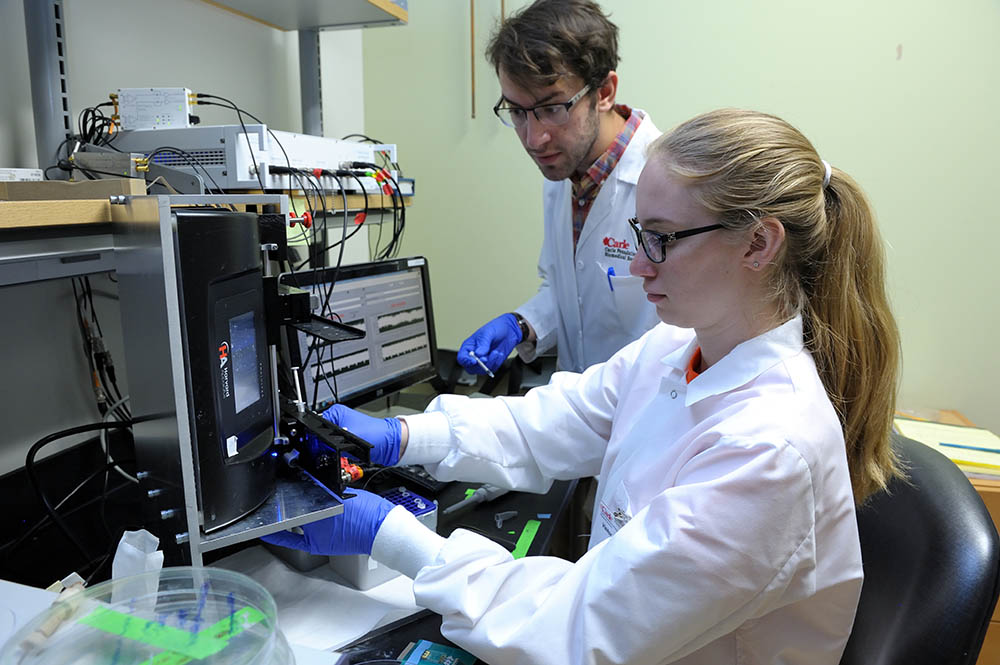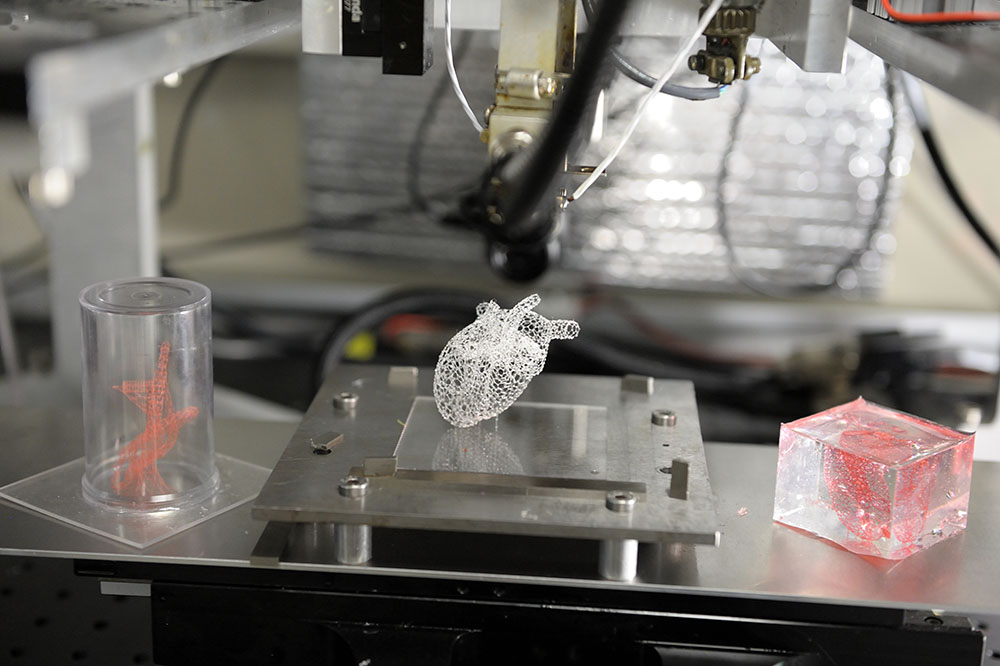
About Bioengineering
Illinois Bioengineering is...
Training
the next generation of health care innovators and leaders.
We’ve revolutionized our curriculum, which is designed around communities of practice in cancer, neurosciences, cardiovascular health, and infectious disease and gastrointestinal health. Beginning in their first year, our undergraduate students receive focused technical training along with valuable clinical and research experience.
Shaping
the future of medical education through the Carle Illinois College of Medicine.
Our faculty have been a driving force in the creation of the first engineering-based college of medicine specifically designed to train physician innovators. Nine Bioengineering professors are among the nearly 100 inaugural faculty in the college and several have played key roles in the curriculum development.

Discovering
ways to improve patient outcomes while lowering health care costs.
Our faculty and students are developing inexpensive point-of-care devices and processes that diagnose disease and disorders as accurately as more expensive, clinic-based instruments, including:
- a smart phone-based analyzer that diagnoses health problems in expectant mothers and infants.
- a lab-on-a-chip that detects the deadly sepsis bacteria in a single drop of blood.
- a portable optical imaging system that can improve cancer surgery outcomes.
- a novel otoscope that non-invasively diagnoses middle ear infections.
- a handheld device that can detect the severity of eye injuries.
Advancing
the medical world’s understanding of disease.
Through fundamental research in areas such as biological machines, novel drug-delivery systems, stain-free optical and chemical imaging techniques, and engineered gene networks, we’re discovering new ways of treating cancer, diabetes, Parkinson’s, cardiovascular disease, HIV, and other diseases and disorders. Our partners include Carle Hospital, OSF HealthCare, and Mayo Clinic.

Growing
the number of students and faculty.
In the past 10 years, we’ve more than doubled the number of undergraduates (107 -> 260) and more than tripled the number of graduate students (30 -> 110). We now have 27 tenure track, research & teaching faculty. And, our graduate students are advised by an additional 50 faculty campus wide.